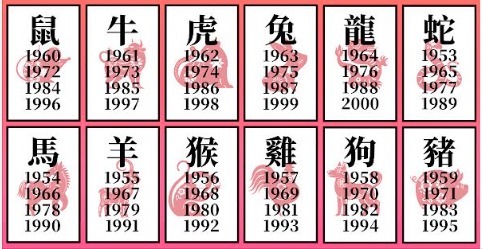#中文文法
Explore tagged Tumblr posts
Text
句法学 - Syntax
词类 cílèi / 词性 cíxìng - Parts of speech
名词 míngcí - Noun
动词 dòngcí - Verb
形容词 xíngróngcí - Adjective
副词 fùcí / 状语 zhuàngyǔ - Adverb
前置词 qiánzhìcí / 介词 jiècí - Preposition
后置词 hòuzhìcí - Postposition
连词 liáncí - Conjunction
代词 dàicí - Pronoun
限定词 xiàndìngcí - Determiner
句法功能 jùfǎ gōngnéng - Syntactic function
主语 zhǔyǔ - Subject
谓语 wèiyǔ - Predicate
宾语 bīnyǔ - Object
语序 yǔxù - Word order
格 gé - Case
主格 zhǔgé - Nominative
宾格 bīngé - Accusative
与格 yǔgé - Dative
属格 shǔgé - Genitive
具格 jùgé - Instrumental
题元角色 tíyuán juésè - Theta roles (语义角色,语义关系,主题关系)
施事 shīshì - Agent
受事 shòushì / 客事 kèshì - Patient
主事 zhǔshì - Theme
感事 gǎnshì / 经验者 jīngyànzhě - Experiencer
益事 yìshì - Beneficiary
领事 lǐngshì - Recipient
终点 zhōndiǎn - Goal
工具 gōngjù - Instrument
Syntactic structure
中心语 zhōngxīnyǔ - Head
附加语 fùjiāyǔ - Adjunct
标定语 biāodìngyǔ - Specifier
论元 lùnyuán - Argument
补足语 bǔzúyǔ - Complement
短语 duǎnyǔ / 词组 cízǔ - Phrase
句子 jùzi - Sentence
分句 fēnjù - Clause
从句 cóngjù - Subordinate clause
(句子)成分 (jùzi) chéngfen - Constituent
Theoretical terms
管辖 guǎnxiá - Govern
约束 yuēshù - Bind
移位 yíwèi - Movement
语迹 yǔjì - Trace
拷贝 kǎobèi - Copy (n.)
提升 tíshēng - Raising
控制 kòngzhì - Control
合并 hébìng - Merge
辖域 xiáyù - Scope
一致 yīzhì - Agreement
特征 tèzhēng - Feature
投射 tóushè - Project (v.)
扩充的投射原则 kuòchōngde tóushè yuánzé - Extended projection principle
语段 yǔduàn - Phase
语段不可渗透性条件 yǔduàn bùkě shèntòuxìng tiáojiàn - Phase impenetrability condition (PIC)
句法树 jùfǎ shù - Syntax trees
节点 jiédiǎn - Node
姐妹节点 jiěmèi jiédiǎn - Sister nodes
母节点 mǔ jiédiǎn - Mother node
女节点 nǚ jiédiǎn - Daughter node
终端节点 zhōngduān jiédiǎn - Terminal node
支配 zhīpèi - Dominate
Theoretical frameworks
生成语法 shēngchéng yǔfǎ - Generative grammar
X' 理论 lǐlùn - X-bar theory (also X次理论)
管辖与约束理论 gǔanxiá yǔ yuēshù lǐlùn - Government & binding
词汇功能语法 cíhuì gōngnéng yǔfǎ - Lexical functional grammar
依存语法 yīcún yǔfǎ - Dependency grammar
#中文#汉语#mandarin#mandarin studyblr#langblr#chinese langblr#词汇#syntax#chinese vocab#mandarin vocab#句法#vocab#句法学
92 notes
·
View notes
Text

❇️
10 notes
·
View notes
Text







#fanart#忍たま#nintama#潮江文次郎#shioe monjirou#立花仙蔵#tachibana senzou#中在家長次#nakazaike chouji#七松小平太#nanamatsu koheita#食満留三郎#kema tomesaburou#善法寺伊作#zenpouji isaku
7 notes
·
View notes
Text

强国不必法古
To build a strong nation, it is not necessary to follow ancient principles.
#Chinese#mandarin chinese#chinese#chinese grammar#chinese langblr#langblr#languageblr#learn chinese#mandarin#mandarin studyblr#中文#proverbs#nation#法
2 notes
·
View notes
Text
I also dubbed Cure Idol's transformation into Mandarin Chinese~
#pretty cure#precure#プリキュア#fandub#光之美少女#you and idol precure#翻配#中文翻配#偶像天使#cure idol#キュアアイドル#キミプリ#キミとアイドルプリキュア#Chinese fandub#dub#magical girl#mahou shoujo#魔法少女
3 notes
·
View notes
Text

まぜこぜ二人一組生き残り野外指定地点発見通過走破時間争い競技こと混合ダブルスサバイバルオリエンテーリング(2回目)の六年生と一年生の組み合わせがKAWAII
4 notes
·
View notes
Text
海外华人都被视为中国国民 习近平要“海内外中华儿女”讲好中国故事
风传媒/简恒宇 …

View On WordPress
6 notes
·
View notes
Text

LFBAUDBAJS FUCK he asks in german "do you speak german?" then in french "do you speak french" then in chinese "i dont speak chinese?"
#笑杀了,“我不会讲中文” 😭😭😭 他们甚至没有使用正确的语法#good omens#jay reads good omens#is this why they made him speak cantonese in s2
7 notes
·
View notes
Text
「例えば、就眠儀式みたいなことですか? 就寝する前に必ず、体操するとか、本を読むとか、そういう」
— 西澤保彦著『春の魔法のおすそわけ』(2011年4月Kindle版、中公文庫)
3 notes
·
View notes
Text
Multiple uses of 你
Aside from its normal use as the second-person pronoun, Mandarin 你 has several other meanings it can take on, depending on the context.
Normal (propositional) use: 你 refers to the addressee
我好像见过你。 'I seem to have seen you before.' (Biq 1991: 308)
Impersonal use: Doesn't refer to the addressee, but to a generic person (English and many other languages have this as well)
那些小孩子恼得叫你不能专心做事。 'Those children make such a noise, it makes you (me, one) unable to concentrate on work.' (Biq 1991: 309)
Speaker-oriented use: The speaker uses 你 to refer to themself or to a group associated with the speaker (note that the reverse situation can occur with 我 referring to the addressee)
Context: An actor discusses his experience with a director 他每次比如说我在演的是手,他会跟你讲这个应该怎么样。 'He gives comments when I am acting, he will tell you (me) how it should be.' (Hsiao 2011: 805) (Note the switch from 我 to 你: The speaker is inviting the listener to put themself in his situation.)
Metalinguistic use: Not used as a pronoun at all, 你 calls on the address to pay attention to the speaker's next point
Context: A and B are talking about the importance of education A: Once education is developed many more doctors can be trained. Uh, this is one point but if not, ah? B: This is medical education. A: 就是医药,对吗,你整个儿的学校也多了,诶,上小学上中学的人都多了,那么上医学院的人也多了。。。 A: 'Just medicine, surely, <NI> the number of schools on the whole increases, eh, the number of people going to grade schools and middle schools increases, then the number of people going to medical schools will increase, too...' (Biq 1991: 314-5)
I just think it's neat how this little pronoun can serve a variety of purposes, and it really goes to show just how creative speakers can be with the tools available to them in their language. I recently saw a presentation by a fellow grad student, Tian Xinhe, who formalized these uses of 你 from a theoretical syntax perspective. If anyone's interested in more details about that, I'd be happy to talk more. :) References & further reading:
Biq, Yung-O. (1991). The multiple uses of the second person singular pronoun ni in conversational Mandarin. Journal of Pragmatics, 16, 307-321.
Hsiao, Chi-hua. (2011). Personal pronoun interchanges in Mandarin Chinese conversation. Language Sciences, 33, 799–821.
史金生 & 王璐菲. (2022). 虚拟对话与立场构: “你”在互动中的移指用法 [Virtual dialogue and stance interpretation: The reference shift of "ni" in interaction.]. 中国语文, 6, 671–683.
Tian, Xinhe. (2025, March 28-29). The multi-functionality of the second person pronoun in Mandarin Chinese: a study on syntax-interaction interface [Conference presentation]. CHAMP3, Barcelona, Spain.
#also i can't find a full version of Shi & Wang's paper#so i've only been able to read the abstract + first few pages#chinese#mandarin#中文#汉语#语法#句法学#syntax#pronouns#pragmatics#please let me know if there seems to be any mistake/typo/etc.
7 notes
·
View notes
Text
【英文法】excitingとexcitedなど分詞形容詞の区別【ワンポイント解説】
#現在分詞・過去分詞#boringとbored#TOEIC#TOEICテスト#トーイック#トイック#わかりやすい#中学校#中学生#中学英語#入試#分詞#分詞形容詞#勉強法#受験#大人#大学#大学受験#大学生#学び直し#形容詞#文法#日本人#日本人の間違いやすい#猛牛ちゃんねる#現在分詞#英会話#英単語#英文法#英語
0 notes
Text
���二生肖是天文曆法與數學智慧的結晶?
[閱讀全文: https://is.gd/8XFIUm]

這套以十二種動物代表年份的系統,既非單純的民間傳說,亦非偶然的數學遊戲,而是古代天文曆法學與社會文化相互交融的產物,反映先民對時間秩序的獨特理解。 [...]
0 notes
